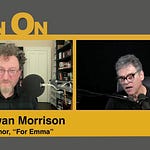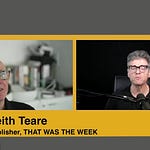How to put America back together? Few people have thought more about this Humpty Dumpty style challenge than Arlie Russell Hochschild, author of the 2016 classic Strangers In Their Own Land: Anger and Mourning on the American Right. So when I sat down with Hochschild for my new KEEN ON AMERICA series, we began by talking about what it means to her to be American and whether she’s ever felt like a stranger in her own land. Born in 1940, my sense is that Hochschild has spent much of her life grappling with what it means to be a progressive American in a mostly conservative country. The Berkeley based Hochschild has made two significant journeys to the American South - the first in early Sixties as a civil rights activist and the second, fifty years later, to research Strangers In Their Own Land. She talked about both journeys as a form of confronting and then resolving her ambivalence about what it means to be an American. These journeys, then, were her way of building what she calls “empathy bridges” with another America. We talked about the American future too. Hochschild believes the work of the sociologist, like the marriage councillor, is a resolve conflict by bringing people together. In contrast with the dark paranoia of many progressives these days, Hochschild is cautiously optimistic about bringing Americans back together. And this conflict-resolution approach, I suspect, will be familiar with many young Americans for whom therapy has been normalized as an essential feature of 21st century life.
Arlie Russell Hochschild’s Strangers in Their Own Land: Anger and Mourning on the American Right, now available in paperback from The New Press, addresses the increasingly bitter political divide in America. A finalist for the National Book Award, and New York Times Best Seller, the book is based on five years of immersion reporting among Tea Party loyalists -- now mostly supporters of Donald Trump. Hochschild tries to bridge an “empathy wall” between the two political sides, to explore the “deep story” underlying the right that remains unrecognized by the left. Mark Danner calls the book “a powerful, imaginative, necessary book, arriving not a moment too soon." Robert Reich writes” Anyone who wants to understand modern America should read this captivating book." In its review, Publisher’s Weekly notes: “After evaluating her conclusions and meeting her informants in these pages, it’s hard to disagree that empathy is the best solution to stymied political and social discourse.” Her 2012 The Outsourced Self: Intimate Life in Market Times, explores the many ways in which the market enters our modern lives and was named one of the best books of the year by Publishers Weekly. Her other books include: So How’s the Family?, The Managed Heart, The Second Shift, The Time Bind, The Commercialization of Intimate Life, The Unexpected Community and the co-edited Global Woman: Nannies, Maids and Sex Workers in the New Economy. In reviewing The Second Shift (reissued in 2012 with a new afterword) Robert Kuttner noted Hochschild’s “subtlety of insights” and “graceful seamless narrative” and called it the “best discussion I have read of what must be the quintessential domestic bind of our time.” Newsweek’s Laura Shapiro described The Time Bind as “groundbreaking.” In awarding Hochschild the Jesse Bernard Award, the American Sociological Association citation observed her “creative genius for framing questions and lines of insight, often condensed into memorable, paradigm-shifting words and phrases.” A retired U.C. Berkeley professor of sociology, she lives with her husband, the writer Adam Hochschild in Berkeley, California.
Named as one of the "100 most connected men" by GQ magazine, Andrew Keen is amongst the world's best known broadcasters and commentators. In addition to presenting KEEN ON, he is the host of the long-running How To Fix Democracy show. He is also the author of four prescient books about digital technology: CULT OF THE AMATEUR, DIGITAL VERTIGO, THE INTERNET IS NOT THE ANSWER and HOW TO FIX THE FUTURE. Andrew lives in San Francisco, is married to Cassandra Knight, Google's VP of Litigation & Discovery, and has two grown children.













Share this post